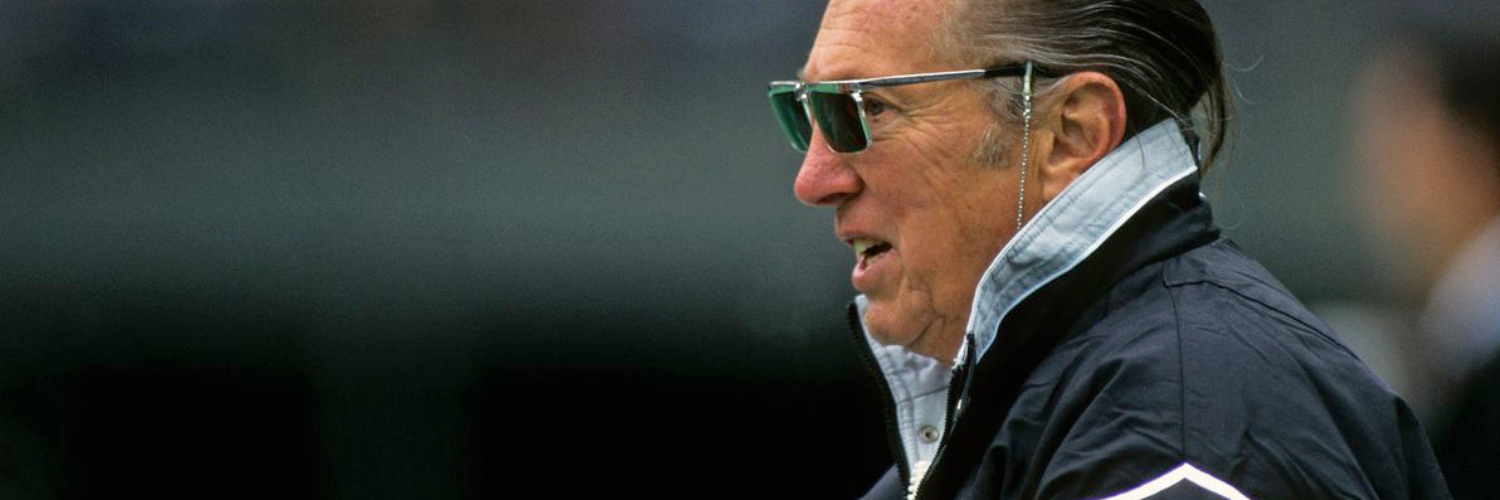Las Vegas Raiders Franchise Value
When it comes to iconic franchises in the National Football League, few teams can match the mystique and tumultuous history of the Oakland/Las Vegas Raiders. From their humble beginnings to their groundbreaking relocation to Las Vegas, the Raiders franchise history as been marked by ownership battles, stadium sagas, and a relentless pursuit of success both on and off the field.
Las Vegas Raiders Team Value : $6.2 Billion
- Championships: 3
- Year Purchased: 1966
- Price Paid: $180,000
- Revenue: $729 Million
- Operating Income: $72 Million
- Player Expenses: $294 Million
- Gate Receipts: $130 Million
- Revenue Per Fan: $119
MORE: VIEW THE FUL LIST OF NFL TEAM VALUATIONS
NFL Raiders Franchise History
Early Years and the Al Davis Era (1960s-2011)
The Raiders’ story began in 1960 when a group of investors, led by Wayne Valley and Ed McGah, secured a modest $610,000 to establish the franchise in Oakland. The team’s renegade spirit was embodied by its former coach and eventual owner, Al Davis, who acquired a stake in 1966 and became the managing general partner two years later.
The Raiders initially began as a part of the American Football League (AFL) before moving to the NFL in 1970 with the AFL-NFL merger. Before the merger, NFL held the advantage of media coverage while AFL team owners were wealthier on average.
Under Davis’ leadership, the Raiders experienced their first relocation in 1982, moving to Los Angeles following a bitter legal battle with the NFL over the team’s future.The move was driven by the promise of a lucrative new market and a state-of-the-art stadium, but it came at a cost – the ill-fated Mt. Davis renovation project in Oakland, which left the team saddled with debt.
The Raiders’ return to Oakland in 1995 brought financial relief, but it also marked the beginning of a stadium saga that would span decades. Davis’ vision for a new, state-of-the-art facility never materialized, and the team remained mired in an aging Oakland Coliseum.
During Davis’ time at the helm, there were many controversial moments including multiple lawsuits against the NFL, the Marcus Allen feud, and the drafting of Jamarcus Russell.

The Post-Al Davis Ownership Transition (2011-2017)
Al Davis’ death in 2011 left the Raiders’ future uncertain, sparking a protracted ownership battle between his son, Mark Davis, and the NFL. Mark eventually gained control in 2014, inheriting a franchise facing significant financial challenges, including low attendance and a dire need for a new stadium.
With the Raiders struggling to secure a viable stadium deal in Oakland, Davis began exploring relocation options. After failed proposals in Los Angeles and San Antonio, the team’s sights turned to Las Vegas.
Las Vegas Raiders Relocation (2017-present)
In 2017, the Raiders secured approval from the NFL to relocate to Las Vegas, setting the stage for one of the most financially complex moves in professional sports history. The centerpiece of the deal was the construction of Allegiant Stadium, a $1.9 billion state-of-the-art venue funded through a unique public-private partnership.
The move to Las Vegas was a calculated risk, with the potential to unlock a new, lucrative market and solidify the Raiders’ financial future. However, it also came with significant upfront costs and the challenge of establishing a fanbase in a city without a deeply-rooted football tradition.
Financial Milestones and Challenges
Throughout their turbulent history, the Raiders have achieved several financial milestones, including lucrative media deals, sponsorships, and merchandising partnerships. However, they have also faced periods of financial instability, including fan attendance issues and legal battles over relocation fees and stadium projects.
The franchise’s approach to revenue diversification has been a key factor in its long-term sustainability. In addition to traditional revenue streams, the Raiders have explored business ventures such as their acclaimed Raider Image clothing line and the acquisition of stakes in other sports franchises.
The Raiders’ Financial Future
As the Raiders settle into their new home in Las Vegas, the franchise’s future financial prospects hinge on its ability to capitalize on the unique opportunities presented by the move. Potential growth areas include capitalizing on the city’s entertainment and tourism industries, fostering new corporate partnerships, and expanding the team’s global brand reach.
However, the Raiders’ long-term financial sustainability will also depend on their ability to maintain a competitive edge on the field and cultivate a passionate fanbase in their new market. With Mark Davis’ long-term ownership plans uncertain, the franchise may also face another ownership transition in the coming years, introducing a new set of challenges and opportunities.

